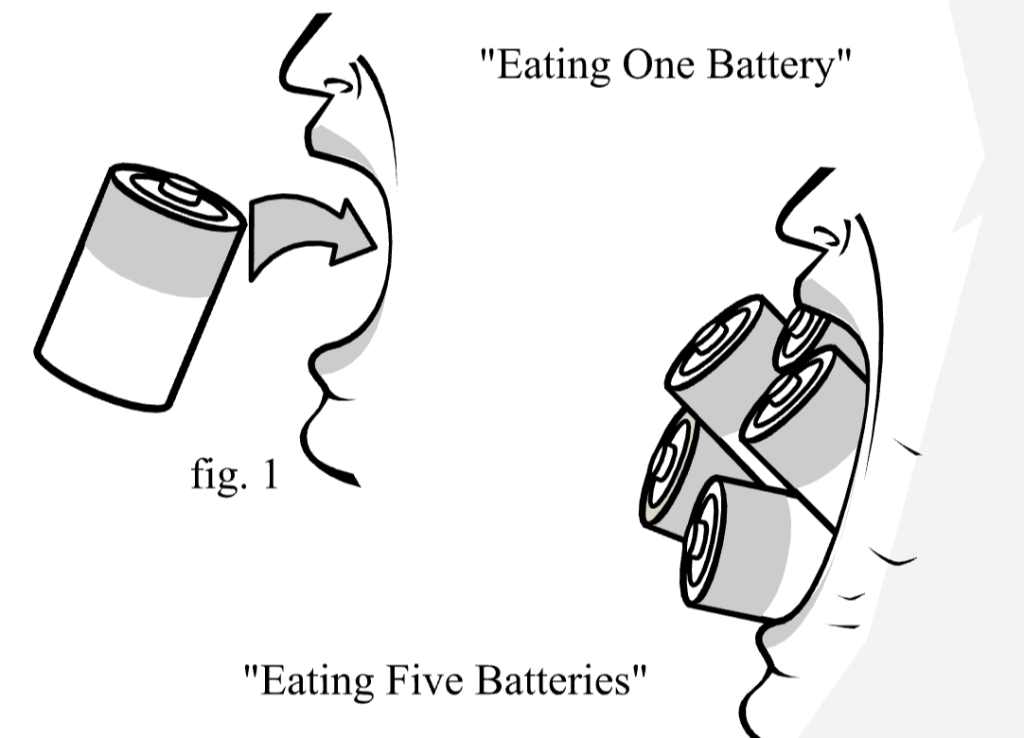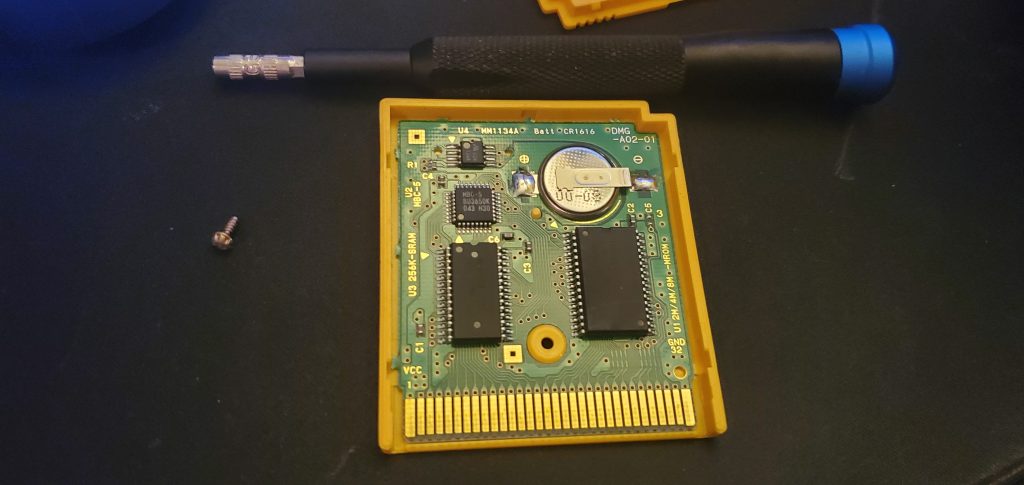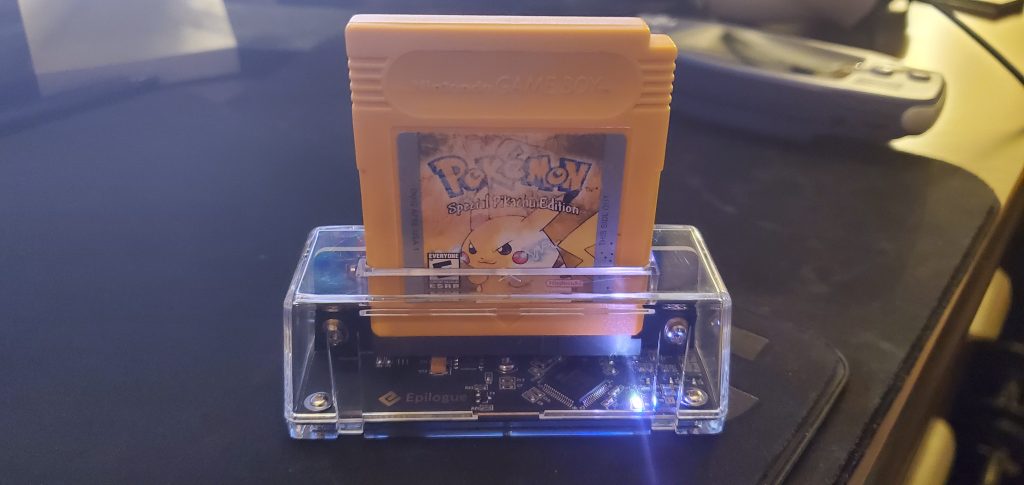First and foremost: Game preservation is super important. As old hardware inevitably dies off, so too does the original and intended way of playing a game produced for that hardware. Emulation is fantastic and extremely necessary as a means of preserving the software and allowing it to be enjoyed in a way that’s at least pretty damn close to the original.
There are obvious differences with emulation though – save states, instant access to cheats, speeding up or slowing down rate of play, et cetera. And the case can absolutely be made that those are good things – sure they’re convenient at the very least. But they’re not how the game was designed or intended to be played, so it’s a different experience to play with those things readily available. But I’m not here to get into any kind of emulation bad/good argument – overall emulation is fucking absolutely good because one day it’ll be the only option for a lot of old games. The original hardware will not all last forever, and once it’s gone, it’s gone permanently.
Sure, there are other efforts and other methods of preserving both the software and the hardware, and I’ll go into a few of them later, but emulation is the primary and most familiar method of preserving and making available the software.
So yes: Emulation is essential and it needs to be supported and praised for what it allows in terms of preserving part of history. Real people, real creative minds worked hard on designing, coding, developing the games we love, and it would be a huge tragedy for any of it to be lost forever. I think I’ve made my case there, and it shouldn’t really need explaining any more. It’s nice that companies like Sony and Nintendo sometimes make old games available again, like how Nintendo has some NES, SNES and N64 titles available on the Switch if you’re a paying subscriber. But that’s only a tiny handful of the full libraries from those consoles, and locked behind a specific subscription service on a specific device. And of course you can make the very strong case that if they own the intellectual property then it’s theirs to sell at whatever price they like and lock behind the platform of their choosing. You’re not wrong, but I’d definitely say you should take a step back and realize our lives are cruelly short and we shouldn’t spend even a damn second of them beholden to corporate overlords who already have more than enough money and don’t need to sell us back shit we already owned as children. That, and what about all the games that AREN’T available through any legit avenues? There is SO MUCH abandonware out there, and emulation is often the only way to get at it for most people.
I digress, as is my wont. Long story short – fuck the whales, save the software!
How do you preserve these old games? ROM dumping. Devices exist which connect to a computer, and then when a cartridge is inserted (NES, SNES, Genesis, N64, Game Boy, Atari, literally whatever cartridge the dumping device is designed to accept), can extract a copy of the ROM. Those ROMs can then be used in an emulator to play the game, or just stored for the sake of preservation. Given the appropriate hardware, you could even write that ROM back onto a cartridge board and make your own cartridge, if you wanted to.
There are a few such ROM dumping devices – the one I’m talking about today, because I own one, is the Epilogue GB Operator, a neat little device that accepts Game Boy, Game Boy Color, Game Boy Advance, et cetera, cartridges. Plug in the cartridge, and you can dump the ROM and save a copy of it. You can then do with that what you will. The Epilogue software actually includes an emulator as well, so you can play the ROMs directly in it if you’d rather play at your computer than on the handheld.
It also helps solve another big problem with older cartridge-based games: Many cartridge games utilize battery-backed saves. Inside the cartridge soldered to the PCB is a simple CR2032 coin battery. Smaller cartridges, like Game Boy ones, use smaller batteries for obvious reasons.

Batteries fuckin’ die. These coin batteries last an obscenely long time, but they die nonetheless, and when the battery goes, so does the saved game on that cartridge, and your ability to ever save on that cartridge again, unless you solder in a new battery. And sure, you can do that – I do it on the regular. I’ve got a whole stack of cartridges in need of battery replacements, and once the new battery is in there I’ve got another 20+ years of life in that cartridge’s ability to save, which is real nice. But what about that awkward moment when I have to take out the old battery and put the new one in? In that time, the save disappears for good (unless you get insanely lucky and maybe there’s just enough power lingering in the capacitors of the board like a ghost in the machine that miraculously keeps the save alive just long enough. It’s rare but it can happen I guess.)

This is another area where these dumping devices like the Operator come in clutch. Slap the cartridge in your PC, backup the save game, replace your battery, put the cartridge back in the PC, write the save back onto the cartridge. Fuckin’ done. Your pokemon from childhood are still alive and now they’ll be comfy on that same old cartridge for decades to come.

That’s really about all there is to it as far as this particular device goes – incredibly easy ROM dumping and save backups for any and all Game Boy games in one compact, nicely-presented and functional device. The software for it is decent and convenient too – it isn’t feature-rich or anything, but it does what I need it to: Copy the ROMs and saves to my computer. The built in emulator is a neat feature, but it lacks all of those modern conveniences of a dedicated emulator. But I think that might be what they’re going for – the emulator in this software is pretty bare bones, which I suppose actually makes it a more historically accurate way to play the games in that sense. It’s not something worth caring about much because if I was serious about emulating stuff I’d get a different emulator that has more features. This is more of a novelty and basic convenience than a dedicated emulation platform. It’s nice to be able to quickly verify the game and save are functional without taking the cartridge out and putting it in the Game Boy.


Now, plenty of people who are much more experienced than I am when it comes to ROM dumping might criticize this particular device. Maybe it’s too expensive for what it does (it’s exclusively a Game Boy device and doesn’t support NES, SNES, etc), maybe the software is too bare-bones and you want to be able to do more – absolutely fair points. But I’ll level with you: My use case is almost exclusively just to back up my saves while I put in new batteries. And it is PERFECT for that. It does it quickly and cleanly and my games are safe. And while I’m at it, I can backup copies of all the ROMs, too. If my cartridges ever break down to a point where repairing them isn’t an option, at least I have copies of the ROMs that are my own and not hidden behind a forced signup website covered in shady ads that could get taken down by a Nintendo lawsuit at any moment.
Back to those criticisms of the device though: As I said, totally fair. There are other options, though their convenience and capabilities vary, and I can’t speak too much on them as I lack experience due to not owning them. A favorite of many retro enthusiasts is the Retrode which supports all manner of different cartridges, Sega, Nintendo, several generations. Only major problem here is they don’t fuckin’ make the Retrode anymore so it’s hard to obtain.
There’s also the INLretro Dumper which looks like a solid option in terms of what cartridges it’s compatible with – basically all the major ones. However, it’s essentially just a bare open PCB and isn’t neatly packaged or anything, if that matters to you. From what I can tell, it also doesn’t yet support backing up of saves, just the ROM itself, which makes it far less appealing in terms of practicality. It also sounds like the software for it is command line only right now, with no GUI, which limits its appeal to more casual users. I’m gonna keep my eye on this one though, because if it gets the ability to backup saves then it’s a solid choice as far as personal game preservation goes.
A quick mention I wanna make on hardware preservation, as an alternative to the kind of emulation everyone’s more familiar with. FPGA hardware is becoming much more common in the retro gaming space with devices like the MiSTer. In layman’s terms, FPGA is sort of hardware emulation (there are plenty of people who argue over whether it’s emulation or replication – I don’t really take a particular side on that, I think it’s ultimately just semantics). You take a chip and make it operate in the same way that a different chip would operate. i.e. you reverse engineer the hardware of something like a Sega Genesis, then program the FPGA to function exactly like the Genesis would. You could essentially build your own console that operated theoretically the exact same way as the original. I’m obviously paraphrasing and I’m no expert on the tech itself, so check out that link above if you want a much smarter person to give you much more info, but it certainly opens up some very appealing avenues for playing and preserving old tech and games in a world that’s moved on.
I’m personally really hype for the Epilogue folks to put out more products. They’ve been teasing a SNES Operator device for fucking years now, so whenever they hurry up and make that available it’ll be a guaranteed purchase from me, assuming better options haven’t become available by then. Supposedly they’ve been working a ton on updating the software so that it will be ready to hit the ground running when SNES games become part of what it can handle, but who knows when that’ll be a thing. I want more than just SNES though – I want all the popular consoles to be available, and frankly I’d rather not be nickle-and-dimed buying one separate product for each console. It’d be nice as hell if they put together an all-in-one device down the line. Maybe there are legal or logistical reasons that they can’t, I don’t know.
Comments
Oh, and I really should add: I wish the Operator had link cable functionality. That’d be sick.
“I’d definitely say you should take a step back and realize our lives are cruelly short and we shouldn’t spend even a damn second of them beholden to corporate overlords who already have more than enough money and don’t need to sell us back shit we already owned as children.”
That’s a phrase worth putting on a plaque. Right-on regarding how tiny the libraries they do bother to preserve are, also. The lack of any desire or effort toward preserving old software (including non-game software) in general is frustrating. When it comes to lesser-known PC games and other software you’re pretty much fucked unless you have access to an older OS or you have enough programming expertise to find and fix any compatibility issues. Any efforts by individuals to keep old stuff usable is praiseworthy, because the intellectual property owners don’t give one infinitesimal fuck about preserving it. Especially if they have newer, more bloated versions to sell you, perhaps as a subscription service. THE NUMBERS MUST INCREASE!
I enjoyed reading your article and found it informative. Poor Peter, that was probably the end of his Pokemon career (for better or worse).
I got nothing to add to your intro before you got to your pictures and their topics. I’ll just say I like how you phrased it. It’s 100% reality. I fully support emulation and honestly, piracy. It really is a boring dystopia we live in. Sure this is just games talk technically, but a lot of the same stupid arguments people make in favor of the bad things corporations do in gaming, I’ve seen in the more important spheres of healthcare and government. It’s insane and I’m trying to figure out any way to help change that.
Fuck copyright law. It’s too abusive, restrictive for mere money’s sake and not at all what it should be about.
I had no idea the cartridge devices existed. I guess I never thought about how ROMs were made from the original carts. I’m so glad they do. It seems like an open secret. Can’t imagine the gaming hardware companies made them. Thank goodness for passionate tinkerers. The modern world would literally not be here without them. I think I learned that from a PBS series called: How We Got to Now. The host was a bit of a tool but the info was fascinating.
Maybe I’m turning to a bitch in my old age somewhere in my 30s but that pokemon Peter story was honestly kind of touching.
Anyway, I appreciate the education. It was a nice read.